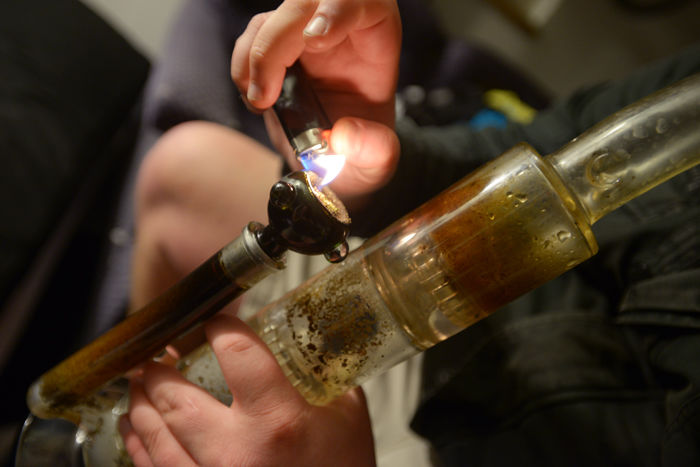No pot, no problem
August 24, 2016
The Pullman City Council decided at its Aug. 16 meeting to increase the space between marijuana shops and areas such as libraries, public transit hubs and childcare centers from the state-required minimum of 100 feet to 500 feet.
This decision is set to become final on Aug. 30, when the council meets again and the moratorium on new pot shops expires.
Washington state law originally required a 1,000 foot buffer zone. However, that has been decreased to 100 feet everywhere but between pot shops and schools and playgrounds, which still requires a 1,000 foot buffer.
The Pullman City Council expressed concerns with the 100 foot buffer, and Pullman Planning Director Pete Dickinson said in an article by the Lewiston Tribune that it was “too tight.” The article explains how the council considered a 300 foot buffer, but eventually agreed on a 500 foot buffer.
The increased buffer zone from 100 to 500 feet stops new stores from opening in Pullman’s downtown and College Hill areas under current zoning laws.
Despite what seems at first like a slam against marijuana sales, this decision shouldn’t be contested.
Mary Jane Smith, owner of MJ’s Pot Shop on Bishop Boulevard, said she is against having shops on College Hill and in more areas of Pullman because the existing market is already spread too thin. Opening more areas to more stores could drive out established businesses.
Smith explained pot retailers shouldn’t want to be on College Hill anyway. She prefers her location on Bishop to one closer to campus because the latter makes the store more accessible to minors than it does to adults.
Any store owner seeking to get closer to an area where fewer people can legally buy their wares is doing poor business.
Like with other age-restricted substances, liability also makes the council’s decision favorable to pot shops.
Smith said she doesn’t want to increase the risk of adults making legal purchases and then distributing MJ’s pot to minors. This is not to mention the same risk posed by fake IDs in the hands of minors who might not otherwise be able to get to her store.
Either of these situations could lead to expensive fines and the revocation of a store’s license, if not criminal penalties.
The tightening of the distance requirements is perfectly fair to the businesses they affect.
Consumers stand to benefit from the caution of both Pullman and its business owners as well.
Competition between pot stores is fairer because they are all clustered together – having pot shops on College Hill and downtown would take away the consumer’s advantage of having all three stores in the same location.
The current arrangement forces the different retailers to compete for lower prices and provide a better selection to the customer’s benefit.
The people of Pullman reserve the right to decide whether they want marijuana sold in their neighborhoods, but the increased buffer zone is not a sign of the city doubling back on marijuana sales.
The trends for both alcohol and marijuana have been an increase in freedom for private sellers.
Most of the cities in this state, including Seattle, Spokane and Vancouver, do not practice citywide bans or moratoriums on marijuana businesses, according to the Municipal Research and Services Center (MRSC).
Pot shops aren’t the victims of the council’s decision, and neither are consumers nor those who live in a state still trying to figure out how to live with it.
Though making the buffer 500 feet prevents new pot shops from opening in more convenient locations, the extension benefits consumers and existing businesses while expanding protection for minors.
Don Cooper is a junior political science major from Pasco. He can be contacted at 335-2290 or by [email protected]. The opinions expressed in this column are not necessarily those of the staff of The Daily Evergreen or those of The Office of Student Media.



















